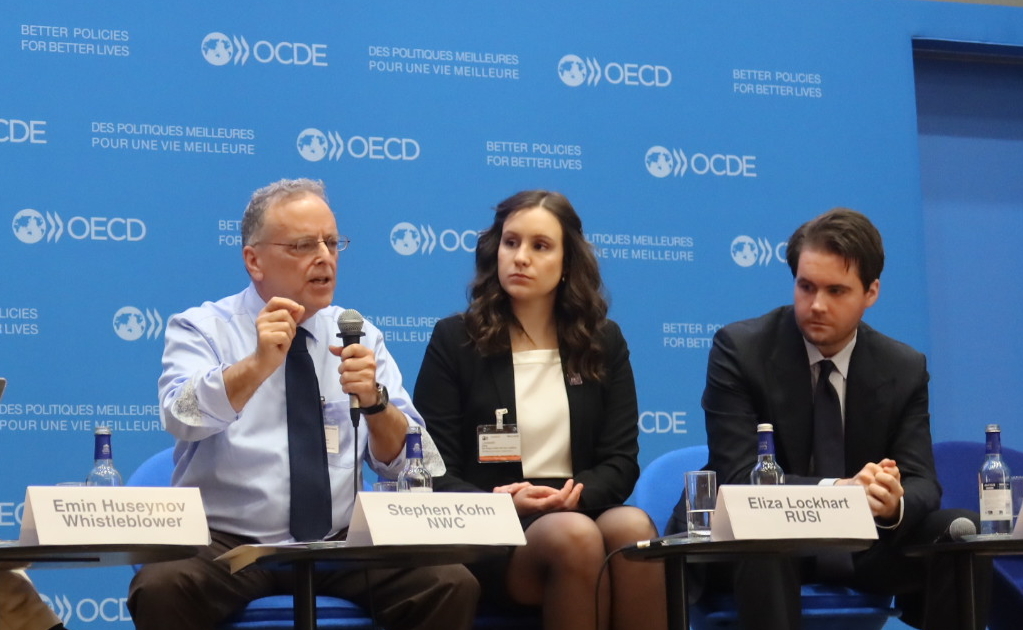May 14, 2025

This information is provided for educational purposes only by Kohn, Kohn & Colapinto and does not constitute legal advice. No attorney-client relationship is created by accessing this content. Laws and regulations may change, and this material may not reflect the most current legal developments. If you believe you have a whistleblower claim, consult a qualified attorney to discuss your specific circumstances.
The Environmental Protection Agency (EPA) is responsible for the enforcement of several environmental laws and regulations.
And even though there isn’t a specific whistleblower program for those who report EPA violations, those who come forward with information about EPA violations may be eligible for protection, and possibly rewards under other specific laws.
Continue reading to learn more about the types of violations the EPA is looking for, the protections available to EPA whistleblowers, and the laws that may offer an award.
Common EPA Violations
Across the globe, the environment is constantly being destroyed on a small and large scale. Below are the most common types of EPA violations that can be reported:
- Improper disposal of hazardous waste: it is illegal to dump waste such as batteries, paints, or chemicals into the trash or drains. This waste can leak into the soil or water table causing immense risk to human and animal health.The most famous case happened in 2006 involving DuPont, where a former plant manager blew the whistle on the company’s illegal practice of dumping hazardous waste, including perfluorooctanoic acid (PFOA), into the environment for decades. This resulted in a landmark $16.5 million settlement and new environmental regulations. The whistleblower faced retaliation from DuPont but was protected under federal law.
- Illegal discharge of pollutants to water: similarly, it is also illegal to discharge waste, such as sewage or stormwater runoff into rivers, lakes, or streams without a permit. Such activity makes water unsafe for all living organisms.The most notable case of illegal discharge happened in 2008 involving Massey Energy Company, Inc. who illegally discharged polluted water from mines into the streams of West Virginia. The company agreed to pay a civil penalty of $20 million to resolve a Clean Water Act violation in both West Virginia and Kentucky. This was the largest corporate-wide settlement at the time. The whistleblower faced harassment and intimidation but was ultimately awarded whistleblower protection.
These are the two most common types of violations that happen on a large scale by corporations who know better but decide to commit the violation anyways.
Other common violations include:
- Improper removal and disposal of asbestos: Asbestos is a mineral that can cause cancer. It is important to remove and dispose of asbestos according to EPA regulations to protect human health.
- Failure to comply with lead paint regulations: Lead paint can cause serious health problems in children, including brain damage and learning disabilities. The EPA has regulations that require lead paint to be removed safely before a renovation or demolition project can begin.
- Violation of air quality regulations: This includes businesses that emit pollutants into the air more than permitted levels. Air pollution can cause respiratory problems, heart disease, and cancer.
If you’re a whistleblower and suspect that a company or individual is violating EPA regulations, you can report it to the EPA. If it involves a corporation doing this violating on a massive scale, we suggest reaching out to a whistleblower attorney as you may face retaliation.
Pollution from Ships
The Act to Prevent Pollution from Ships (APPS) was passed in 1980 and makes it a crime to violate certain provisions of MARPOL. APPS is enforced by the U.S. Coast Guard and the U.S Environmental Protection Agency. This law makes it illegal to do any one of the following:
- Discharge ship waste into the ocean;
- Dump garbage into the ocean;
- Manipulate monitoring systems;
- Keeping false records or logs;
- Failure to keep records or logs;
Whistleblower Rewards for Reporting APPS Violations
To encourage whistleblowing and combat ship pollution, the Act to Prevent Pollution from Ships (APPS) offers whistleblower rewards. Anyone, regardless of citizenship, can report violations and potentially receive a reward. These rewards can be substantial, reaching up to half of any fines or penalties collected by the government. The program’s success is evident: between 1993 and 2017, U.S. courts awarded over $33 million to 205 whistleblowers in 100 APPS prosecutions, with more than 75% of those whistleblowers being non-U.S. citizens.
Whistleblower Protection
The EPA protects whistleblowers who report environmental violations. This protection is granted to anyone who reports potential violations, including employees or the general public. These protections are enforced through various laws, including:
- The Clean Air Act
- The Safe Drinking Water Act
- The Federal Water Pollution Control Act
- The Resource Conservation and Recovery Act
- The Toxic Substances Control Act
These laws prohibit employers from taking any negative action against whistleblowers, such as terminating their employment, demotion, pay cuts, negative performance reviews, harassment or threats to their livelihood.
The EPA will maintain confidentiality throughout the whistleblowing process, so if you’ve been retaliated against, you can file a complaint with the Office of Inspector General (OIG).
Seeking Legal Help?
If you know of an EPA violation or have voiced your concerns and have experienced retaliation, get in touch with our whistleblower attorneys today for a free and confidential consultation. You may be eligible for protection and rewards for your information.
Our Firm’s Cases

$125 Million in Awards
We have successfully represented a number of SEC whistleblowers, preserving their anonymity and securing sizable whistleblower rewards. In one case, we helped our client receive one of the ten largest whistleblower awards ever granted by the SEC.





